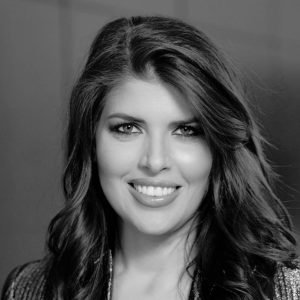Dubai and Abu Dhabi have long been regarded as modern oases in a region frequently rocked by conflict and political tension. As tensions surged across the Middle East recently, both cities once again proved that calm can indeed prevail in chaos.
Their response was swift, calculated, and deeply reassuring—not just to their residents, but also to businesses, investors, and international observers. Amid missile warnings, momentary airspace disruptions, and global uncertainty, the UAE’s leading emirates remained open for business and steady in demeanor.
A Crisis That Could Have Shaken the Core
The Middle East faced a moment of high volatility. Regional powers exchanged missile strikes, creating shockwaves that were felt far beyond the borders of those directly involved. For a brief moment, Dubai and Abu Dhabi closed their airspace. International headlines speculated whether this marked a turning point—was the Gulf’s stronghold of safety finally under threat?

But within hours, normalcy resumed. Flights restarted, major events continued as planned, and the stock markets in both cities not only recovered, but surged forward. The message from the UAE was clear: disruption may knock, but it won’t enter easily.
How They Held Their Ground
Economic Diversification Was the Secret Weapon
Over the past decade, both Dubai and Abu Dhabi have strategically shifted away from oil dependency. In Dubai, tourism, logistics, finance, and real estate have built a robust buffer. Abu Dhabi, traditionally more reliant on hydrocarbons, has aggressively pursued investments in manufacturing, renewable energy, and tech sectors.

This economic flexibility provided a cushion during times of crisis. While oil prices fluctuated in response to geopolitical tension, the broader UAE economy stayed active, diverse, and forward-looking.
Strategic Diplomacy — The UAE’s Silent Superpower
One of the UAE’s most underappreciated strengths is its diplomatic balancing act. It maintains strong relations with global superpowers, regional neighbours, and non-aligned states alike. This allows both Abu Dhabi and Dubai to operate in a space of neutrality that builds trust, not just in boardrooms but also on the global stage.
Rather than reacting impulsively, the UAE chooses dialogue, measured silence, or strategic engagement. This posture has repeatedly helped it avoid becoming a target or a participant in broader regional conflicts.
Infrastructure That’s Built for Resilience
From airports to emergency response systems, the infrastructure in both cities is built to weather disruptions. In the recent crisis, air travel rerouted efficiently, businesses enacted contingency plans without delay, and critical services continued to function with minimal interruption.
Dubai International Airport and Abu Dhabi International are not just gateways—they are meticulously managed hubs capable of adapting under pressure.
A Market That Refused to Panic
Instead of a market downturn, the days following the airspace closure saw both Dubai and Abu Dhabi’s stock markets rebound. The financial world took note of how institutional investors continued their activities undeterred.

There was no capital flight, no mass withdrawals. Quite the opposite—fresh foreign investment interest poured in as global markets saw how well the UAE handled adversity. Sovereign wealth funds remained active, IPOs stayed on schedule, and multinational corporations reaffirmed their presence in the region.
Daily Life Continued—And That Made All the Difference
The most powerful proof of stability often lies in the ordinary. Across both emirates, children went to school, malls welcomed shoppers, beaches filled with tourists, and the evening city lights sparkled as usual.
Despite the headlines and social media buzz, life on the ground was marked more by routine than panic. That confidence matters. For expats considering whether to stay, tourists deciding whether to visit, and CEOs weighing whether to open regional offices, a calm population sends a loud message.
Expats Weighed the Risks—And Chose to Stay
Dubai and Abu Dhabi host millions of expats from every corner of the world. When crisis strikes nearby, it’s this community that usually feels the tremors first. And yet, this time, most didn’t pack up or even consider it.
Employers reassured teams, embassies issued guidance, and communications stayed transparent. In many companies, staff continued coming to work as usual, confident that contingency plans were in place and that the local authorities were on top of the situation.
In a world of uncertainty, where even developed nations sometimes feel fragile, the UAE continues to offer something rare: predictability and professionalism.
Business Continuity Plans Passed the Test
Many of the region’s largest businesses have long factored geopolitical instability into their planning. But the recent crisis gave them a real-time trial. From financial institutions to global logistics firms, businesses activated their continuity protocols and found them not only working—but working seamlessly.
Meetings went ahead, mergers stayed on track, and major deals continued being inked. Free zones like DIFC and ADGM operated without disruption. The crisis didn’t halt business—it validated the strength of doing business in the UAE.
Real Estate, Tourism, and Retail—Still Thriving
Contrary to fears, Dubai’s property market remains buoyant. Investors view UAE real estate not just as a luxury asset but also as a safe, appreciating one. Tourism continued too, especially as the city remained open and vibrant.
Retail didn’t take a hit either. In fact, Dubai and Abu Dhabi’s luxury shopping districts remained busy throughout the crisis, with international brands reporting steady foot traffic and solid sales.

Building a Safe Brand That’s Global
The UAE’s approach to brand-building goes beyond skyscrapers and luxury cars. It’s about building a reputation for safety, reliability, and maturity. The country’s leadership has made it a national priority to ensure the world sees the UAE as a partner—politically, economically, and culturally.
In the long term, this is why Dubai and Abu Dhabi keep attracting new residents, talent, and businesses even when other regions falter. It’s not just about money—it’s about trust.
Looking Ahead — A Confident Future
No country or city is immune to the forces of geopolitics. But what sets Dubai and Abu Dhabi apart is how they prepare, how they respond, and how they recover. Their actions during this recent regional crisis have reaffirmed their position as the most resilient, forward-looking cities in the Middle East.
Governments around the world have taken note. Global media now speak of “the UAE model” not just in economics or technology, but in stability management.
For businesses and individuals alike, the conclusion seems obvious: when the Middle East gets turbulent, the smart move is to stand with the UAE’s twin titans of calm.
Do follow UAE Stories on Instagram
Read More: Harry Potter: The Exhibition Brings The Wizarding World To Abu Dhabi This July













